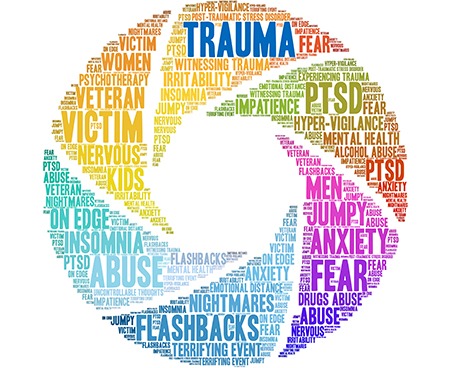 Taralynn partners with primary therapists and their clients to target the clients’ specific memories, body sensations, or limiting beliefs with EMDR Therapy Intensives.
Taralynn partners with primary therapists and their clients to target the clients’ specific memories, body sensations, or limiting beliefs with EMDR Therapy Intensives.
We’ve all had those moments in therapy where we feel stuck or loop on issues related to negative life experiences. It can be discouraging for both the client and the therapist. Often times, when the primary therapist and client collaborate with an EMDR therapist, this partnership can help move treatment forward.
At True Mind Therapy, Taralynn partners with primary therapists and their clients to target the clients’ specific memories, body sensations, or limiting beliefs with EMDR Therapy Intensives. By targeting specific traumatic memories or intrusive material, adjunct EMDR therapy can accelerate progress in traditional therapy, help the client and the primary therapist to resolve stuck points, and enrich their ongoing work.
Adjunct therapy does not replace or interrupt ongoing therapy; it is supplemental to the primary therapeutic relationship. Think about this like you would with other medical providers; you have a primary care physician that provides you with ongoing care, but at
times refers you to a specialist for certain issues. In this case, I’m the specialist. With adjunct EMDR therapy, clients continue to receive treatment with their primary therapist. Usually adjunct therapy is short term and desensitizes single incident trauma or simple
phobias that interfere with the client’s therapeutic gains.
What Is Adjunct EMDR Therapy?
Adjunct EMDR therapy is a specialized approach where I partner with your primary therapist to address specific traumatic memories or limiting beliefs creating roadblocks in your healing journey. This collaboration doesn’t replace your existing therapeutic relationship but enhances it through focused trauma processing.
Think of it this way: your primary therapist provides ongoing support for your overall mental health, while I focus specifically on processing the traumatic memories holding you back. The position I take as an adjunct therapist complements your existing therapy, allowing for deeper healing of specific issues.
 Who is a good candidate?
Who is a good candidate?
• Individuals who have been engaged in traditional therapy but find themselves at a standstill or experiencing slow progress may benefit from the targeted approach of EMDR Adjunct Therapy.
• Individuals who are highly motivated and willing to work alongside a primary
therapist and EMDR therapist.
• Individuals without active substance abuse, self-injury, or safety risks.
• Individuals who have adequate access to social support networks.
• Individuals who have a secure and stable living environment.
Types of issues addressed with Adjunct Therapy
Although there are a variety of areas in which adjunct EMDR therapy would be suitable below are just a few examples:
A single traumatic event such as:
– A car accident
– A sexual assault or a violent attack
– A natural disaster
– An unexpected or sudden loss of a loved one
A specific issue or symptom such as:
– Re-occurring nightmares or flashbacks
– Panic attacks
– Simple phobias
– Overcoming Compulsive behaviors (Disordered Eating, Addiction (Detur Method)
– A specific life-adjustment event such as a recent divorce, or a relationship break-up. or a recent job loss
How Adjunct EMDR Therapy Works at True Mind Therapy
At True Mind Therapy in Austin, Texas, I create a seamless collaborative experience with your primary therapist:
- Initial Consultation: We explore your specific needs and goals for adjunct therapy.
- Treatment Planning: Together, we develop a targeted program focusing on specific memories or beliefs that would benefit from EMDR processing.
- EMDR Intensive Sessions: We engage in focused sessions using the evidence-based EMDR protocol to process traumatic memories.
- Integration: Your primary therapist helps you integrate these breakthroughs into your ongoing therapy.
- Follow-up: I maintain communication with your therapist to support your continued progress.
This structured approach ensures you receive specialized trauma processing while maintaining your valuable primary therapeutic relationship. As colleagues in your care, we work together to address your specific needs while honoring your unique healing journey.
Why Professional Women Choose Adjunct EMDR Therapy
When you choose adjunct therapy in Texas at True Mind Therapy, you’ll experience several key benefits:
Accelerated Progress
By targeting specific traumatic memories with EMDR, we can often achieve significant breakthroughs in a relatively short time. This focused approach helps you move past stuck points that may have been slowing your progress in traditional therapy.
Specialized Trauma Processing
As an EMDR specialist, I bring specific knowledge and skills in trauma processing that complement your primary therapeutic work. This specialized expertise allows us to address complex trauma memories with precision and care.
Maintained Primary Therapeutic Relationship
Your relationship with your primary therapist remains intact and important. Our work together enhances rather than replaces this vital connection, giving you the best of both therapeutic worlds.
Targeted Intervention
Rather than addressing every aspect of your mental health, adjunct therapy allows us to focus specifically on the traumatic memories creating obstacles in your healing journey.
Why Choose True Mind Therapy for Adjunct EMDR in Austin, Texas?
As a survivor of sexual abuse and eating disorders, I bring both professional expertise and personal understanding to our sessions. My journey through trauma recovery gives me unique insight into the challenges you’re facing, allowing me to create a safe space where you can feel truly seen and understood.
I combine evidence-based clinical techniques with a spiritual approach that honors your whole being. This integrative method helps us address not just the symptoms of trauma but its deeper impacts on your sense of self, relationships, and connection to purpose.
My practice in Austin, Texas is dedicated specifically to professional women who are ready to break free from the limitations of past trauma. You’ve already demonstrated remarkable strength in building a successful life. Now, it’s time to release the trauma preventing you from experiencing true fulfillment.
EMDR Intensives: Accelerated Healing for Busy Professionals
For professional women in demanding careers, finding time for weekly therapy can be challenging. That’s why I offer EMDR Intensives as part of my adjunct therapy services in Texas. These longer, concentrated sessions allow for significant progress in a shorter timeframe.
EMDR Intensives typically involve sessions of 2-3 hours, allowing us to complete full protocols in just a few meetings rather than spreading them across months of weekly sessions. This format is particularly effective for:
- Processing single-incident traumas
- Addressing specific phobias
- Breaking through therapeutic plateaus
- Working through clearly defined traumatic memories
Many clients find that EMDR Intensives provide a powerful boost to their ongoing therapy, helping them achieve breakthroughs that might have taken months in traditional weekly sessions.

The Connection Between Trauma and Your Current Challenges
As professional women, we often develop exceptional coping mechanisms that allow us to achieve success despite carrying unresolved trauma. However, these coping strategies—perfectionism, overworking, people-pleasing—eventually become limitations themselves.
Professional Life
- Imposter syndrome despite objective success
- Difficulty setting boundaries with colleagues or clients
- Perfectionism that leads to burnout
- Decision paralysis in important moments
Personal Relationships
- Challenges with vulnerability and intimacy
- Difficulty trusting others or yourself
- Patterns of either overgiving or withdrawal
- Fear of abandonment or rejection
Internal Experience
- Chronic feelings of “not enough”
- Disconnection from your body and its wisdom
- Spiritual disconnection despite seeking meaning
- Compulsive behaviors as coping mechanisms
Through targeted EMDR work, we can address the root traumatic experiences feeding these patterns, allowing you to develop new skills and break free from their limitations.
Specialized Areas of Focus
Sexual Trauma Recovery
As a survivor of sexual abuse myself, I bring deep personal understanding to my work with women healing from sexual trauma. Sexual abuse creates unique challenges that can persist long after the traumatic events, including:
- Complicated relationship with your body and physical sensations
- Difficulties with trust and intimacy
- Shame and self-blame that resist logical reassurance
- Challenges with boundaries and self-protection
EMDR therapy is particularly effective for sexual trauma because it processes memories at both cognitive and somatic levels without requiring detailed verbal recounting of every aspect of the trauma.
Healing from Compulsive Behaviors
Compulsive behaviors often develop as attempts to manage overwhelming emotions stemming from trauma. Whether struggling with disordered eating, overworking, relationship patterns, or other compulsions, these behaviors typically represent attempts to:
- Self-soothe when triggered
- Create a sense of control in an unpredictable world
- Numb uncomfortable emotions or body sensations
- Distract from intrusive thoughts or memories
Having recovered from my own eating disorder, I understand the complex relationship between trauma and compulsive behaviors. EMDR therapy addresses these issues by processing the underlying traumatic experiences driving the compulsion.
Contributing to Your Community Through Healing
When you participate in adjunct therapy, you’re not only investing in your own healing but also contributing to the wellbeing of your community. As you develop greater self-awareness and emotional regulation, these skills naturally extend to your interactions with others.
Many clients find that as they heal their own trauma, they become more effective leaders, more present partners, and more authentic friends. By addressing your trauma, you create ripple effects that positively impact everyone around you.
Qualifications for EMDR Therapy
When seeking an adjunct EMDR therapist, it’s important to work with someone who has the proper qualifications. As a licensed therapist specializing in EMDR, I have completed:
- Comprehensive EMDR basic training
- Advanced training in working with complex trauma
- Specialized education in addressing sexual trauma
- Ongoing professional development in trauma treatment
These qualifications ensure that the treatment you receive is both effective and aligned with current best practices in trauma therapy. My personal experience with trauma recovery also gives me unique insight into the healing process that goes beyond academic training alone.
 The process of adjunctive EMDR therapy is as follows:
The process of adjunctive EMDR therapy is as follows:
• Primary therapist obtains a Release of Information from client and contacts EMDR
specialist to discuss referral.
• Primary therapist and EMDR therapist discuss issues related to referral and develop
potential targets for EMDR processing.
• Client makes appointment with EMDR therapist,
• Client and EMDR therapist discuss issues for treatment, develop clear targets for
treatment, thorough explanation of EMDR treatment and process, client signs open
release of information between therapists and discuss EMDR therapist role in the
treatment, importance of the primary therapy relationship.
• The primary therapist and EMDR therapist agree upon a method for active and
reciprocal communication to coordinate the therapy.
If you are feeling stuck in anxiety or trauma with your work with your primary therapist, reach out to me today to see if adjunct EMDR therapy may be a good fit to accelerate your progress.
Ready to Transform Your Life?
If you’re ready to move beyond the limitations of past trauma and access your full potential, I invite you to reach out. Taking this step shows tremendous courage and self-compassion—qualities you’ve already demonstrated by seeking information about adjunct EMDR therapy in Texas.
To learn more about how adjunct EMDR therapy might support your healing journey, including scheduling options and fee information, please contact me directly. I look forward to supporting you as you claim the freedom, joy, and authentic power that is your birthright.


 Who is a good candidate?
Who is a good candidate? The process of adjunctive EMDR therapy is as follows:
The process of adjunctive EMDR therapy is as follows: